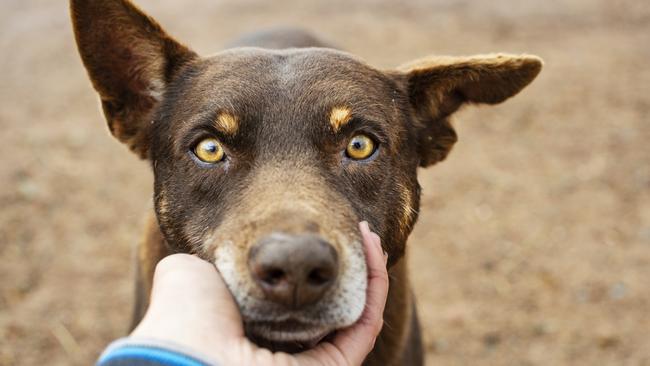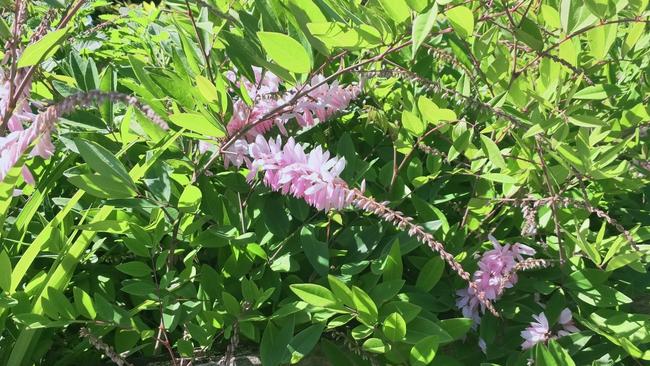Victorian dog deaths: Maffra Knackery speaks out on pet food link to deadly disease
Victorian dog owners are given answers around a deadly disease, as authorities warn the contaminated pet meat may still be in circulation.

Pet meat from a Gippsland knackery has been linked to a severe liver disease which has affected at least 61 dogs in Victoria, including 21 who have died.
A PrimeSafe and Agriculture Victoria investigation last week identified indospicine as the cause of liver failure in the cluster of dogs – a toxin found across Australia in native plants of the Indigofera species.
It confirmed today that test results showed pet meat processed at the Maffra & District Knackery Pty Ltd as the source of the indospicine.
The main focus of the investigation is now on horse meat with the authorities saying they are now aware of a consignment of horses that came to Victoria to be processed for pet meat from the Northern Territory, where the Indigofera plant is known to grow.
Indospicine can build up in the tissue of some grazing animals when they continue to eat the plants. Indospicine toxicity has not previously been reported in Victoria but has been reported in northern Australia when dogs eating horse or camel meat were affected.
The announcement of the findings from the investigation comes after the Maffra knackery took to Facebook on Thursday night to explain its involvement, saying the family-owned business was “shocked”.
“We are devastated that an exotic plant toxin from interstate in our pet meats has been linked to the unprecedented spate of dog illnesses and deaths in Victoria by the authorities,” the post said.
“While we welcome the animal health authority’s findings that the Australian plant toxin, Indospicine, was the cause of the mystery severe liver disease we cannot yet comment on whether we agree with their ultimate conclusions that the toxin was in our meat and that toxin was what injured the dogs.”
Maffra Knackery said it had worked openly with the authorities during the investigation.
“We provided details of station bred horses we purchased from northern Victoria which we now understand might have contained the toxin because they had crossed the Victorian border from interstate,” the post said.
Maffra Knackery co-owner Karen Backman was quoted in the post to say: “Our hearts go out to all those families and pets that suffered from the effects of the interstate toxin.
“This is the worst thing that could have happened and we could not have been prepared. It’s just awful. It’s never happened before. We are making sure it will never happen again.”
She said they had since implemented a strict “Victorian animals only” requirement for their pet food range and would have their scientists review the authorities’ data to ensure the investigation findings were correct.

The affected dogs, predominantly in the Bairnsdale, Traralgon and Mornington Peninsula areas and Melbourne’s eastern suburbs, were young, healthy and vaccinated.
The authorities have urged Victorians not to feed their pet fresh or frozen raw pet meat sourced from the Maffra District Knackery between 31 May and 3 July, and check with their retailer or supplier if they are unsure.
“All kinds of pet meat fitting that description should be considered at risk of indospicine contamination, due to the blending of pet meats, including products described as beef and kangaroo pet meat,” a statement from PrimeSafe and Agriculture Victoria said.
“Pet meat that is contaminated with indospicine may still remain in circulation, despite voluntary withdrawals by the pet meat processing facility and recalls by pet meat retailers.”
Some products will be labelled as Maffra District Knackery and Backman’s Greyhound Supplies.
The authorities said testing and gathering information would continue, focusing on identifying any further distribution of the indospicine contaminated pet meat.
Victoria’s Chief Veterinary Officer Dr Graeme Cooke said dog owners should look out for a sudden loss of appetite, lethargy and jaundice in a dog that was previously healthy.
The Weekly Timesrevealed this week that it was unclear whether PrimeSafe or Agriculture Victoria would have power to take disciplinary action if a responsible party was identified.
The regulation of pet food has been a talking point for years, with a senate inquiry into the issue in 2018.
MORE



